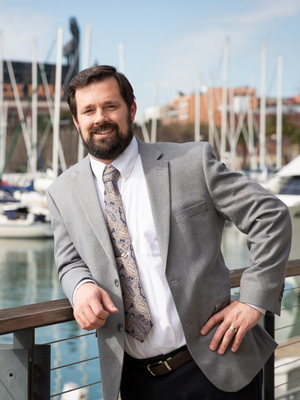Over the years, Nikolaus Reed, personal injury attorney and 13-year-member of the San Francisco-Marin Lawyer Referral and Information Service, has gained an expert understanding of the nuances involved in representing individuals recovering from life-altering injuries. He emphasizes the balance of recovery while navigating the simultaneous challenges of their legal matter: “There’s a whole emotional and mental journey that they’ve got to get through, in addition to the physical stuff along the way.” Reed believes that understanding his clients’ comfort levels, aversions, and risk tolerance is crucial to providing the best service. For instance, some clients do not want to relive the trauma of their injury, so attorneys must pay close attention to each client’s cues. Reed noted, “There’s a reason they call you ‘counselor.’ I didn’t know that I was going to be a therapist, but there is part of that in there.”

Reed explained that part of his role also involves educating clients on trends in the legal system as many are unaware of the high percentage (60 to 70%) of cases that settle before a lawsuit is filed. Of the 30 to 40% that do proceed to a lawsuit, 95% are settled before trial. He attributes this to how familiar attorneys are with case patterns, in addition to the inherent variability of jury trials: “You not only have to figure out how many times you’re going to beat the offer at trial, but by how much.” For example, Reed cited a recent hung jury trial in which the jury’s deliberation varied widely in terms of an award amount, ranging from nothing to $1 million. Due to the uncertain nature of jury trials, understanding a client’s risk tolerance and how they will handle the legal process is almost as important as knowing their damages. Reed’s role is to help clients understand these facts and steer them to the best decision. To help their client navigate different settlement offers, a civil litigator like Reed must also become an expert on their client’s case to assess what is a fair award. Reed explained that confidence in a case’s value can help secure the best settlement, noting “The party who’s willing to walk away from a deal usually gets a better deal.” When advising clients on whether to accept or decline an offer, Reed also considers the defense counsel’s ability to incur costs, which can significantly impact a client’s prospects.
Finally, Reed has learned to resist assumptions and focus on the unique details of each case. He warned against getting distracted by mischaracterizations, such as treatment delays or reluctance that can be misconstrued as a lack of injury. Instead, Reed encourages personal injury litigators to dig deeper and consider the plaintiff’s efforts to manage symptoms while carrying out their daily life and aiming to avoid invasive procedures. He recounted a recent experience where the SF-Marin LRIS referred him a case that had been turned down by a larger firm but materialized to a seven-figure settlement with Reed’s counsel: “They told them, ‘We don’t want your case.’ They didn’t look at it closely. And I heard this case when it was brought from The Bar and thought it’s the best case I’ve ever heard in my life.”


